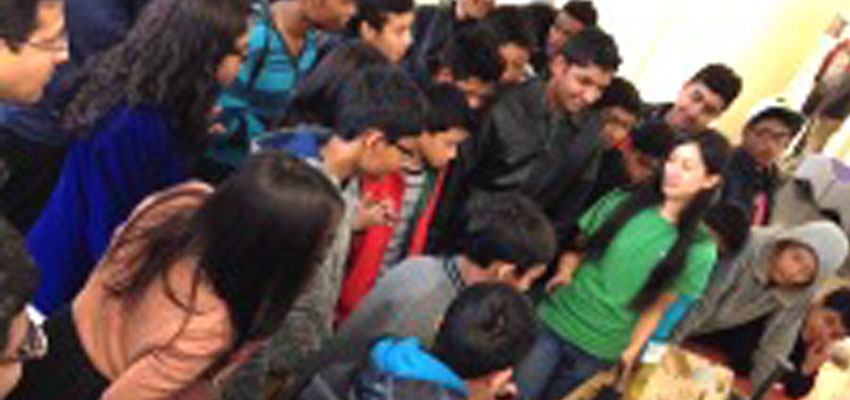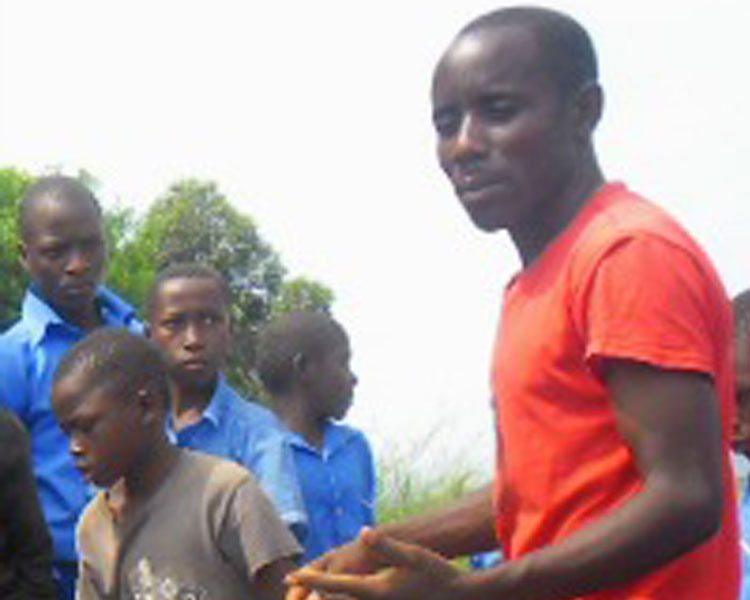
Inspired by the Stanford d.school K12 Lab Network, D-Lab’s youth program has been building a community of collaborators to engage more educators, youth and their families than ever before.
This community currently includes other outreach groups at MIT along with schools and educational organizations around the world. Together, we are able to amplify each program’s capacity to provide resources, support each other's teaching, and learn how to apply a creative design process to overcome challenges. This is a process that helps us innovate in the ways we work to increase access to hands-on STEM (Science, Technology, Engineering, Math) exploration and improve the quality of life in communities facing financial poverty.
Expanding professional development opportunities designed for - and with - educators
D-Lab’s youth program has been experimenting with how we can open our doors to discuss challenges and share ideas, curricular materials, tools, and technologies with more educators. This has ranged from hosting teachers on campus for interactive tours and collaborative workshops, to hosting teachers-in-residence for periods of three weeks to three months. Teacher-in-residence share their expertise from years of working with youth in various contexts, give guest lectures in our courses, interact with youth and educators in D-Lab's network, and collaborate with us on education-related design projects.
In 2014, a few highlights include joining efforts with the MIT Museum and the Edgerton Center for the Needham fifth grade science teachers' Professional Development day; running design activities and joint ideation sessions with teachers from the Advent School in Boston as they prepare for their summer programs; hosting visiting teachers from Colorado and California to Rwanda and Afghanistan; and bringing in our first international teacher-in-residence, Elius Muhumbise from Uganda, through a collaboration with the Brookwood School.
We are trying to plan our events with teachers, often with some of the same teachers who will be attending, and solicit feedback to improve future offerings.
Enabling record numbers of youth to access D-Lab’s space and experiential learning offerings
Each semester, since the launch of D-Lab’s youth program, we have had several hundred young people, their families, and their teachers visit us during our weekly open hours. D-Lab undergraduate Sydney Beasley and graduate student Jennifer Boyu Chen played lead roles this semester in facilitating hands-on activities with visiting youth groups. The youth and educators we work with have also hosted our university students, instructors, designers, and researchers at their own schools and youth centers.
In addition, we have been exploring two more types of K-12 student engagement this year: 1) collaboration with large public events to help us reach broader youth audiences, and 2) longer, interactive modules to dive deeper into design, technology, and global challenges.
For example, the 2014 Cambridge Science Festival and Earth Week events at MIT brought over 150 people to D-Lab in a single day to learn about the challenges driving our international work and build creative confidence through hands-on design activities. Visitors also heard stories from our international network of innovators (a few inventors are even about the same age as our visiting youth) about how they design solutions. Every visit to D-Lab also includes many opportunities to interact with our technologies and see practical applications of science concepts.
We are now in the midst of our collaboration with the Advent School to support their summer programs, which has had record enrollment so far this year! Called the Dream-Design-Discover programs and fondly nicknamed a “mini D-Lab,” each module explores a topic in-depth for two weeks with nearly 40 junior and senior designers, ages five to nine. We just started wrapping up the first two-week module on simple machines, and are getting ready to explore toy design around the world and investigate engineering related to wind and water over the next month.
Another exciting collaboration has been with ARCK (Art Resource Collaborate for Kids) in the Boston Public Schools and neighborhood centers on a STEAM (STEM + Arts) curriculum. This year, D-Lab undergraduate Lisa Nam worked with ARCK teaching artists and JFK Elementary School teacher Kathy Wright to run a semester-long design program involving weekly sessions with three fifth grade classes. We are looking forward to continuing our work with ARCK in Boston this fall.
Both of these programs aim to increase global awareness and empathy, while encouraging the budding young scientists, engineers, and creators to take action in own communities here.
Exploring how to provide international education partners with more on-the-ground support
Recognizing the limited capacity of our staff, we have been creating more opportunities for students from the D-Lab: Education class to do summer fieldwork with partner schools and educational organizations abroad. The international school exchange, led by eight grade teacher Rich Lehrer at the Brookwood School, is another way that international partners like the Kasiisi Project in Uganda can receive more support and leverage D-Lab’s network.
Please stay tuned for blog posts from our teams and collaborators as they return from their summer trips to Colombia, Uganda, Ghana, and beyond!


